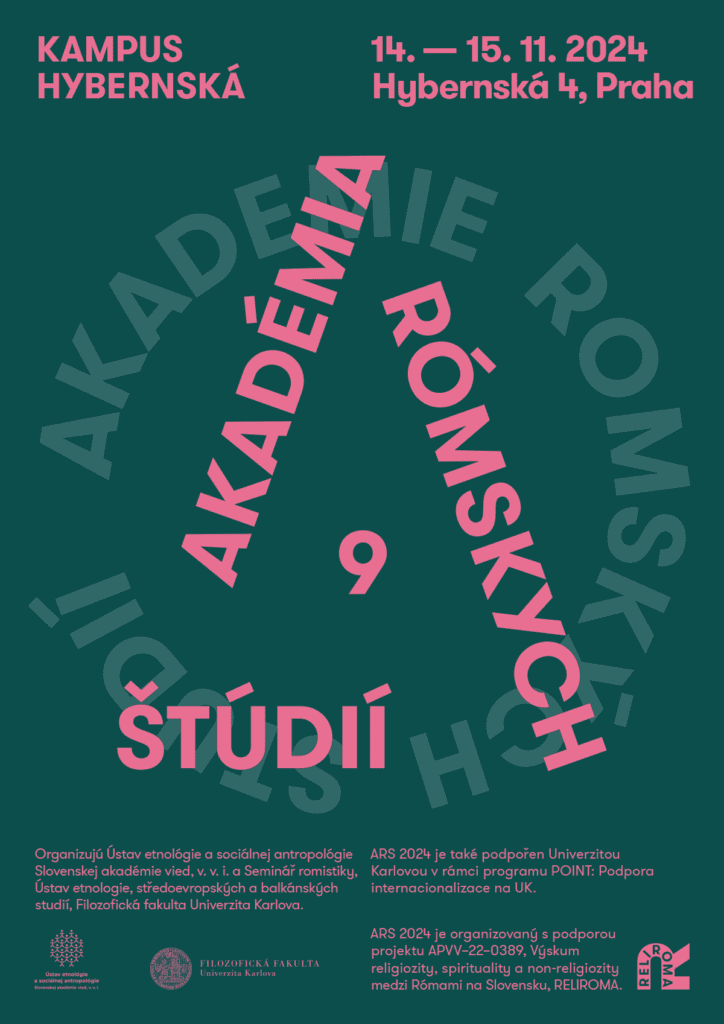The Academy of Romani Studies 2024 (ARS 2024) aims to present current research related to Romani communities in the territory of the former Czechoslovakia and to provide a platform for mutual discussion among engaged researchers. The event seeks to connect various disciplines—including history, ethnology, linguistics, anthropology, religious studies, sociology, and art studies—and to showcase both academic and applied research projects.
Presentations are not limited to completed research projects; they may also cover ongoing or planned studies, including doctoral research. The event’s ambition is to open new topics and engage with issues resonating in the current global Romani studies discourse, such as research ethics, power hierarchies, academic responsibility, and participation. It will also provide a platform for researchers from diverse institutions in the Czech Republic and Slovakia currently engaged in Romani studies.
Abstracts (maximum length 1 standard page / 1,800 characters) should be submitted by August 20, 2024 (extended from the original July 29, 2024 deadline) to pavel.kubanik@ff.cuni.cz. For any questions or clarifications, please contact the organizers at the same email address.
From the submitted abstracts, the organizing team will select ten contributions by August 26, 2024, and invite the authors to submit an extended abstract (6–10 standard pages) in the form of a commented outline of the future paper by October 15, 2024. This text will serve as a basis for discussion during the workshop. Presentations will last 30 minutes, followed by a 30-minute moderated discussion. Unlike conventional conferences, ARS 2024 will provide ample time for in-depth dialogue and feedback.
Read more in the call for abstracts HERE.
ARS 2024 is organized with the support of the APVV–22–0389 project “Research on Religiosity, Spirituality and Non-religiosity among Roma in Slovakia (RELIROMA)” and the Charles University within the POINT Program: Support for Internationalization at Charles University.
The event is jointly organized by the Institute of Ethnology and Social Anthropology of the Slovak Academy of Sciences, v. v. i., and the Seminar of Romani Studies, Institute of Ethnology, Central European and Balkan Studies, Faculty of Arts, Charles University.
